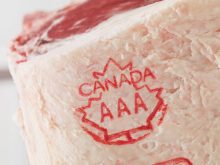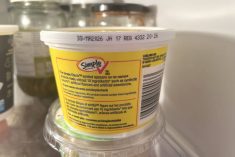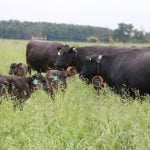Reuters – The Biden administration plans to spend more than US$2.1 billion in funding to shore up weaknesses in the country’s food supply system exposed during the COVID-19 pandemic and the aftermath of the Russian invasion of Ukraine.
U.S. Agriculture Secretary Tom Vilsack will unveil the new funding, designed to enhance competition in food processing and distribution, increase access to healthy food, and expand markets for farmers, during a speech at Georgetown University.
Worker illness and other disruptions during the COVID-19 pandemic caused delays and log-jams in the food supply chain, and Russia’s invasion has led to higher prices for agricultural inputs and food products, indications that the U.S. food economy needs to be made more robust, Vilsack told Reuters ahead of the speech.
Read Also

Trade uncertainty, tariffs weigh on Canadian beef sector as market access shifts
Manitoba’s beef cattle producers heard more about the growing uncertainty they face as U.S. tariffs, and shifting trade opportunities, reshape their market.
“In order for us to be able to deal with future disruptions, whether future pandemics or something else, we need a more resilient system,” he said. “A more resilient system is a system that has options.”
The investments, drawn from the American Rescue Plan Act and other relief legislation, will include US$900 million for food processing workforce training and supply chain infrastructure, US$550 million for small food businesses and reducing food waste, US$375 million for organic and urban agriculture projects, and US$370 million to boost public access to healthy food.
Vilsack said USDA will work with Congress to secure longer-term funding for new and expanded programs via the upcoming Farm Bill and the next appropriations process.
Hearings for the 2023 Farm Bill are already underway and negotiations will likely begin in earnest next session, policy advocates have told Reuters. The Farm Bill is typically passed every five years.
USDA has previously pledged US$775 million in technical assistance, loans and grants for independent meat and poultry-processing plants.














